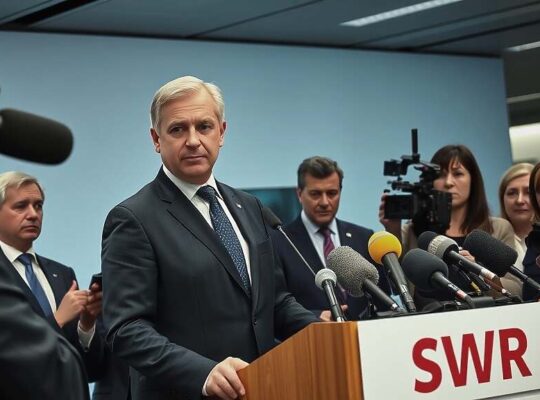The northern German state of Schleswig-Holstein is signaling a potential funding shortfall despite recent federal commitments to accelerate infrastructure projects, raising questions about the true scope of the government’s infrastructure push. State Premier Daniel Günther, of the Christian Democratic Union (CDU), has publicly stated that the pledged three billion euros earmarked for shovel-ready transport projects is insufficient to cover the entire pipeline.
Günther’s comments, delivered to the news portal T-Online, directly challenge the implied certainty surrounding the funding. While he acknowledged and welcomed the coalition government’s decision to redirect funds from the climate and transformation fund towards infrastructure, he emphasized a key phrase from the official agreement: that projects deemed “shovel-ready” will receive financing. His reliance on this statement suggests a belief that further federal support is likely and potentially necessary, to deliver on the government’s promises.
The situation highlights a disconnect between the rhetoric and the reality of infrastructure financing in Germany. Previously, federal Transport Minister Patrick Schnieder had indicated a considerably larger funding gap, estimating the total shortfall at fifteen billion euros. This discrepancy underscores the complexities involved in estimating project costs and the potential for overoptimistic projections.
Günther’s critique also serves as an attempt to repair reputational damage following a period of public confusion. He characterized the earlier communication surrounding the 500-billion-euro special fund as a “communicative mishap” that fuelled the perception that infrastructure projects would be delayed by years, if not decades. Such delays are politically untenable and difficult to justify to the public.
However, Günther’s optimism regarding future funding hinges on the government’s commitment to its pledge of building all shovel-ready projects. It remains to be seen whether that commitment can be matched by a willingness to allocate the necessary resources, particularly given the existing budgetary constraints and competing demands for funding. The situation is likely to place pressure on the federal government to clarify its long-term infrastructure financing strategy and address concerns regarding the true capacity to deliver on its promises.












